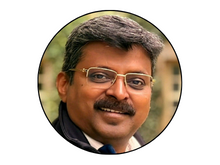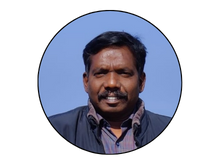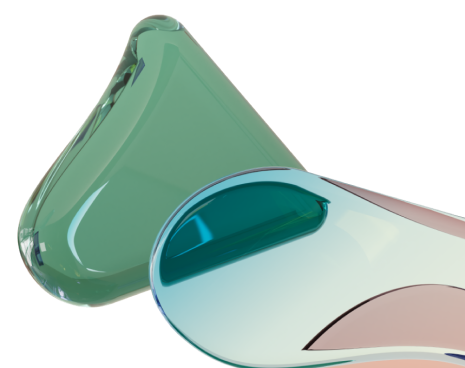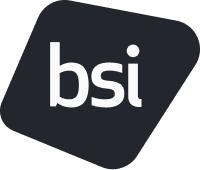Action-oriented progress to mitigate AMR and its impact on the environment
According to the World Health Organization, antimicrobial resistance (AMR) has been declared a top 10 global public health threat and is expected to get worse unless action is taken. AMR threatens to undermine the basis of modern medicine by rendering the antibiotics used to treat and prevent infections ineffective. But AMR has implications beyond human health. The health of humans, domestic and wild animals, plants and the wider environment (including ecosystems) are closely linked and interdependent. Accordingly, a “One Health” approach is necessary to prevent and control AMR. This webinar will focus on the connection between human health and environmental pillars of One Health, and its link to the manufacturing of antibiotics. BSI is working with the pharmaceutical industry and wider healthcare ecosystem to contribute to the responsible manufacturing of antibiotics.
As outlined in the UN Environment Programme report, Bracing for Superbugs (2023), the environmental dimensions of AMR include pollution from hospital and community wastewater, effluent from pharmaceutical manufacturing, run-off originating from plant and animal agriculture and other forms of waste and releases. Resistant microorganisms are found in humans, plants, animals, and the environment and can spread from all of the above sources. Discharged emissions from the manufacturing of antibiotics, including wastewater emissions into surrounding aquatic environment, have the potential to contribute to the emergence and spread of AMR in the environment and therefore must be effectively treated, monitored and controlled. Having into consideration the transmission pillar priority research areas defined by the AMR One Health Priority Research Agenda (AMR OHPRA), responsible antibiotic production can be seen as a crucial precautionary measure within the scope and the wider efforts to mitigate the threat of AMR. Finally, there is a need to balance access, innovative research, and policy incentives for greater availability of antibiotics, whilst implementing appropriate environmental controls.
About this event
You will hear different perspectives in this session on how different actors involved in healthcare and life sciences are building environmental considerations into their efforts to procure, manufacture antibiotics, and ultimately provide appropriate antibiotic access.
GARDP – the lens of the non-profit organization – Lack of access to antibiotics is a major public health concern. In South Asia alone, we estimate that over one million people with some of the most serious “carbapenem-resistant” infections do not have access to appropriate treatments. GARDP is dealing with this issue head-on. It is enabling greater access to antibiotics through partnerships with antibiotic developers and manufacturers, whilst ensuring strict controls are in place to avoid introducing antibiotics into the environment. A concrete example of these efforts is the cefiderocol access project, which reflects a One Health approach to AMR. GARDP will share how environmental considerations are built into its manufacturing sublicense agreement with Orchid Pharma to expand antibiotic access as well as limit environmental exposure to antibiotics for the better health of people and the world we live in.
Orchid – the journey towards embedding environmental and waste controls at manufacturing sites. Leadership and operational buy-in process, as well as insight into context for India. Orchid will outline the drivers towards adhering to environmental standards, what are the challenges and costs involved. How do environmental standards fit into Orchid’s values and how the adherence to such standards benefit the wider AMR ecosystem and counter the threat of AMR. Undergoing independent assessment by BSI, the opportunities for improvement identified and implemented.
Shionogi – Shionogi & Co. Ltd. (Shionogi)'s role in working with GARDP, and the Clinton Health Access Initiative CHAI to provide access to cefiderocol in a number of predominantly low- and middle- income countries. Shionogi will outline how their role goes beyond researching and developing innovative new medicines to address significant unmet medical needs, including their focus on developing sustainable programmes, including the critically important agreements with GARDP and CHAI, that focus on significant public health priorities, including access to and appropriate use of antibiotics
BSI – outlining the journey towards developing an industry standard and development of the independent certification process for antibiotic manufacturers. The connection of responsible antibiotics into the wider drivers in the AMR community – appropriate access, innovation of novel antibiotics, and links to sustainability reporting. BSI’s role of an assessment body role that assesses the wastewater dilution, discharge, and control requirements of the Antibiotic Manufacturing standard (which launched June 2022) have been satisfied. Outline the process towards becoming certified and how the certificate can be used as a differentiator in the wider marketplace.
Who should watch?
• Pharmaceutical manufacturers
• NGOs
• Department and ministries of health
• Healthcare system procurement professionals
• Medicine regulators
• Environmental regulators
• Waste management companies
• Wastewater treatment companies
Speakers
Moderator




Email: bsi@bsigroup.com
Phone: +44 123456789




